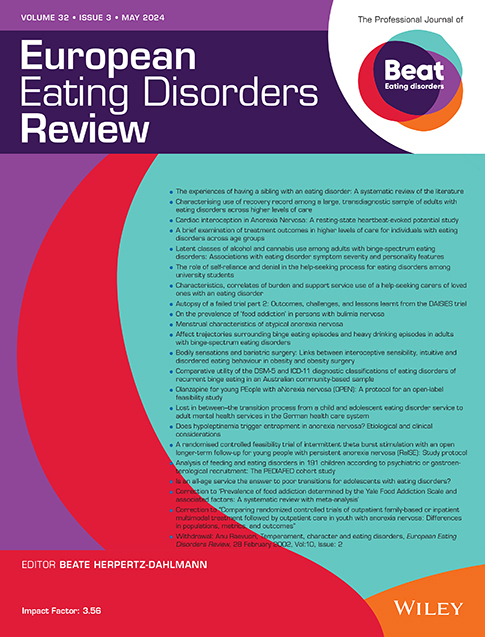Identifying factors that predict the onset and persistence of fasting for weight control: Prospective findings
Abstract
Objective
Fasting for weight control is an under-studied behaviour implicated in eating disorders. However, little is known about what factors account for its onset and persistence.
Method
This study sought to identify risk and maintenance factors for fasting among 1025 women recruited through an eating disorder self-help platform who completed study measures at baseline and 6 month follow-up. Univariate and multivariate logistic regressions were performed to test which variables at baseline predicted the onset (vs. stably asymptomatic) and persistence (vs. remission) of fasting at follow-up.
Results
Univariate models showed that higher baseline overvaluation, dissatisfaction, fear of weight gain, generalised and social anxiety, depression, self-esteem deficits and eating disorder symptoms (inflexible eating rules, driven exercise) predicted greater likelihood of fasting onset. Only fear of weight gain and depressive symptoms remained significant in the multivariate model. Higher baseline overvaluation, fear of weight gain, driven exercise, inflexible eating rules, and depression predicted greater likelihood of fasting persistence in univariate models. An adherence to inflexible eating rules and overvaluation remained significant in the multivariate model.
Conclusion
Findings shed new light on factors that may account for the development and maintenance of fasting, which have implications for guiding effective interventions targeting this behaviour.

 求助内容:
求助内容: 应助结果提醒方式:
应助结果提醒方式:


